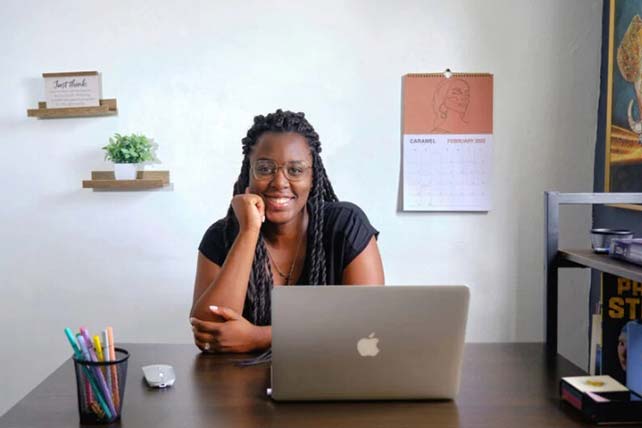(RNS) — Adebisi Gbadamosi might still be going to her home church were it not for COVID-19.
Until spring 2020, Gbadamosi, who goes by “Bisi,” worked in children’s ministry at her Baptist church in Florida and was usually hanging out with kids during the sermon. When COVID-19 restrictions moved services online, she was reassigned to run the church’s social media.
For the first time in years, she was watching when the pastor gave his sermon, and she was shocked.
Her first Sunday in the new role, the pastor went on a tirade against the protests that followed the death of George Floyd. Gbadamosi, who is Black, recalled the pastor saying that protesters were “baby children who had not been raised right.”
RELATED: Four Times God Powerfully Subverted Racism in the Bible
That sermon turned out to be one in a series condemning the protest and liberals. The pastor’s lack of concern about Floyd’s death or the issue of racism — in a church not far from where Trayvon Martin was killed — made Gbadamosi feel like an outsider among people she thought loved her. The comments in the church’s social media feed cheering the pastor on made things worse.
“It was as if my presence did not matter,” said Gbadamosi, now 26, who said she’d been outspoken with her concerns about racism in the broader culture.
She walked out of the church service that day and eventually left altogether.
Like many Americans in the current era of rapid polarization, Gbadamosi found herself estranged from the faith community she had grown up in. In Gbadamosi’s case, her home congregation was also affected by an ongoing fight in the Southern Baptist Convention, where a so-called woke war over critical race theory and social justice has been waging in recent years. That conflict, too, has left some Black Christians in evangelical spaces feeling they no longer belong.
Bisi Gbadamosi. Courtesy photo
The loss of a spiritual home and feeling rejected in particular because of her race and her concerns about racism can be a twin trauma. “It made clear to me that there was nothing I can ever do to be enough for some of them,” Gbadamosi said in a recent phone interview.
Gbadamosi, a therapist working on finalizing her Florida license, was in grad school at the time and fulfilling a school requirement to go through therapy herself. It was, she said, a godsend.
In her own practice, Gbadamosi said she works with clients who have had similar experiences with spiritual trauma. There are few therapists who understand that particular mix of emotions and experience, she told Religion News Service. Those who have experienced faith-based traumas can go through an identity crisis, as if the foundations they built their lives on are unstable.
“That can be a really lonely space,” she said.
RELATED: Newsboys Lead Singer Michael Tait Discusses Deconstruction, Racism and Taking a Stand
The sense of being betrayed by people who said they loved you, said Gbadamosi, can make it difficult to trust faith communities in the future. Gbadamosi said she eventually found a new church but for a long time just sat in the pews and did not get involved, needing time to recover.


